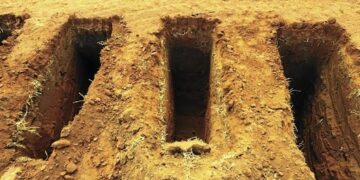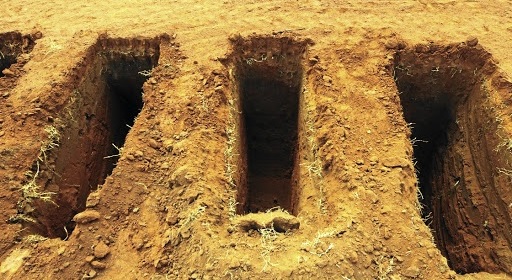ByJohn Ikani
The residents of Omdurman, the twin city adjacent to Sudan’s capital, Khartoum, are enduring intense aerial bombardments and heavy clashes as the conflict between the army and a paramilitary force enters its fifth month.
A plea circulated on social media on Tuesday, seeking gravediggers as casualties mount due to bombs raining from above and bullets flying at ground level, wreaking havoc on civilians.
Access to main cemeteries is hindered by ongoing fighting, pushing many of the deceased into mass graves.
A reliable source at the sole operational hospital in Omdurman reported 33 civilian deaths since Monday, marking a noticeable escalation in the conflict.
This surge in violence is reportedly the fiercest since the war’s onset in April.
The army, in its bid to dislodge the paramilitary Rapid Support Forces (RSF) from Omdurman sectors, is employing aerial bombardment and ground shelling.
Their objective is to control a pivotal bridge spanning the Nile, connecting Omdurman and Khartoum North—a key RSF route.
While the city is accustomed to the constant sounds of gunfire, the resounding blasts of explosives, shaking both people and structures, introduce a new layer of fear.
Daylight reveals smoke billowing from various buildings throughout the city, while nightfall is illuminated by the ominous streaks of overhead shells.
A heavy artillery assault on west Omdurman Tuesday night resulted in two civilian fatalities and several injuries. It triggered another wave of evacuations, with many seeking refuge in north Omdurman, a comparably safer zone, or fleeing the capital altogether.
Leaving the country in this perilous situation has become nearly impossible due to multiple border closures.
“May God have mercy on us. Everyone is fleeing, even during rain and complete darkness [due to power cuts]. My mother wanted to leave, but my brother insisted on waiting for morning,” shared Bakita Hassan, a 44-year-old resident of the Ombadah neighbourhood.
While the RSF positions in Old Omdurman appear to be the primary target, clashes among armed factions are unfolding in various areas, including near Hassan’s home.
An Ombadah police station has been repurposed as a makeshift RSF detention centre, and the army is targeting it. Unfortunately, some shells have veered off course, striking civilians instead.
In a separate incident, a well-known ice cream vendor in West Omdurman suffered a leg injury from shrapnel while working. Although her leg is fractured, she survived.
Operating a stall in a local market, one of the few still providing essential supplies in Ombadah, she and others now find the market nearly empty on Wednesday. For the first time since April, shoppers are unable to find vegetables or meat as most vendors seem to have fled.
For those choosing to stay, life is rapidly growing more challenging.
Fortunately, some possess personal savings or can access funds from neighbourhood businesses. However, with banks ransacked and mobile money services disrupted, many are grappling to make ends meet.
Despite international efforts to facilitate talks between the conflicting parties, there appears to be little readiness for negotiation from army chief Gen Abdel Fattah al-Burhan or RSF leader Mohamed Hamdan Dagalo, commonly known as Hemedti.
As a ceasefire remains elusive, both sides seem entrenched in an unending cycle of offensives and counter-offensives.




































